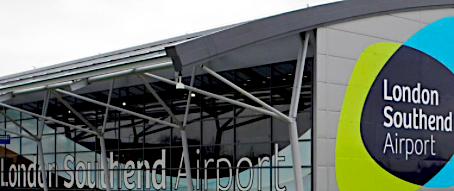Carlisle-based aviation and energy firm Stobart Group late on Thursday published its results for the 12 months to February 29, 2020, and announced a proposed capital raise of more than £120 million.
Stobart Group, which operates London Southend Airport, said it will exit its rail and civil engineering business, focus on aviation, dispose of non-core businesses and “monetise value for shareholders” from its energy business over the next 18 to 24 months.
Stobart Group said its revenue from continuing operations rose 15.9% to £170.2 million and its loss for the year widened to £137.9 million from a £58.2m loss in the previous year.
Stobart Group said that “with the business currently suffering from the severe negative impacts of the pandemic, the group requires additional liquidity both to fund the group’s short-term cash obligations …”
The proposed capital raise will comprise “in excess of £80m firm placing and placing and open offer and a £40m additional revolving credit facility.”
The company said: “Stobart Group … today announces its intention to raise gross proceeds of between £80 million and £100 million by way of a firm placing and placing and open offer of new ordinary shares in the capital of the company at a price between 35 and 40 pence per new share …”
Stobart Group shares rose about 4.5% to 69p on Thursday.
Stobart Group CEO Warwick Brady said: “We are today announcing a clear plan to stabilise the business and provide a secure platform to move forward.
“We have a cost-efficient proposition for airlines and will further develop our passenger-focused airport experience that seeks to maintain passenger flow and provide enhanced customer confidence.
“Therefore, we will focus our investment and our business in this asset by seeking to dispose of our non-core businesses and, in due course, monetise Stobart Energy.
“The launch of the capital raise that we have announced today will provide the group with the financial resilience necessary in the current environment and ultimately to position the business for success in the post COVID environment.”
